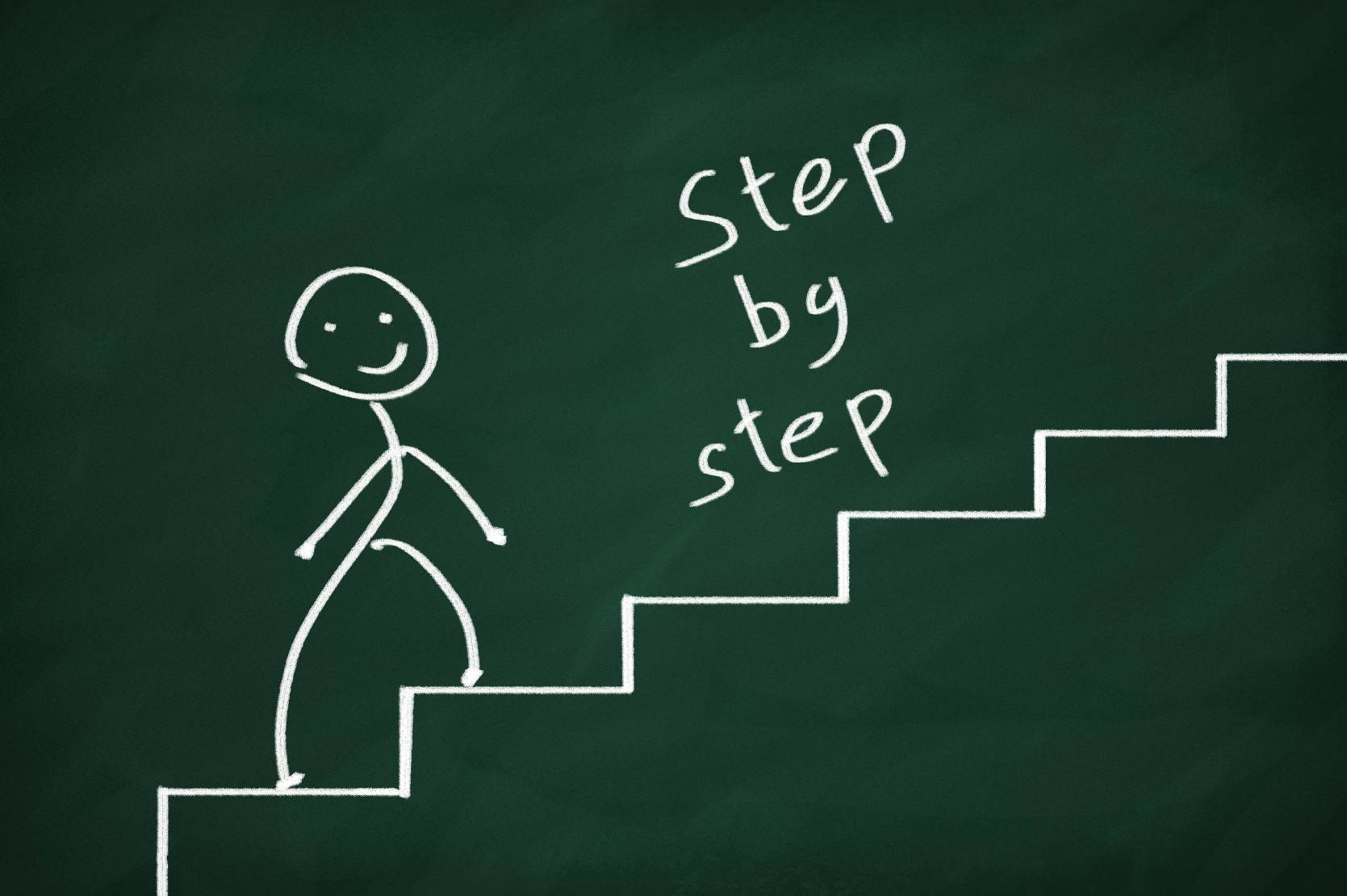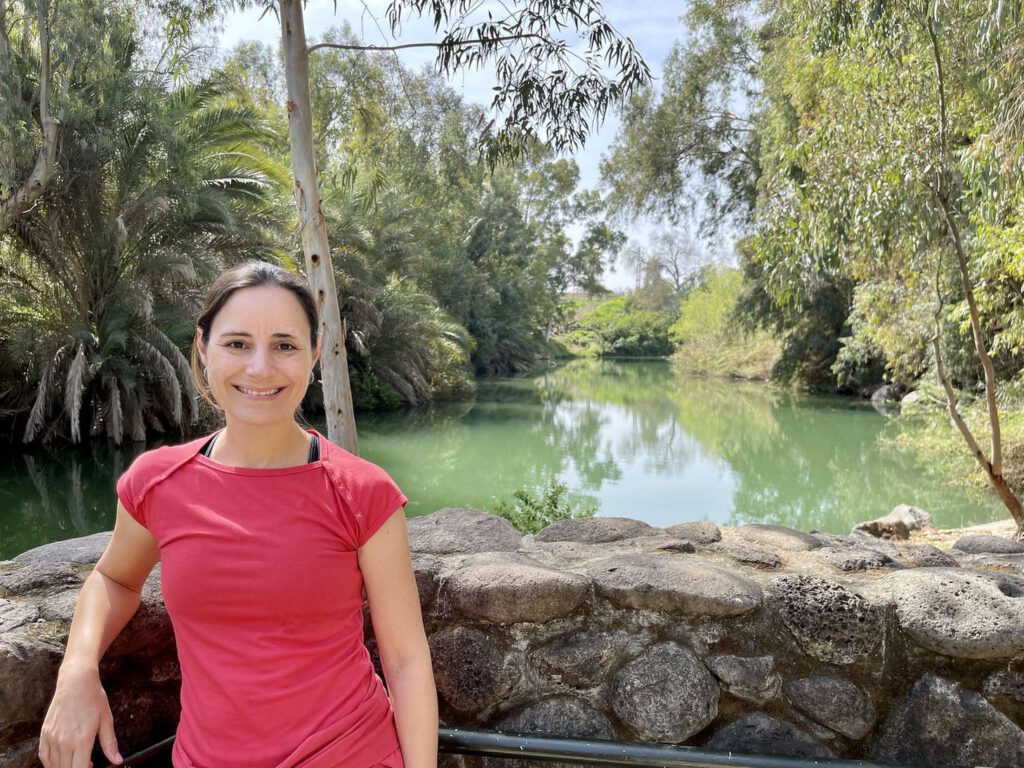
Many small steps
Author: Kerstin Goldstein
Last updated: 12. June 2025
When life with fibromyalgia feels overwhelming, it’s natural to long for an easy solution.
I know how disheartening it can be when nothing seems to work the way it once did. When you feel like you’re trying so hard, yet standing still.
But real change begins right there — not by fighting against your body, but by learning to listen to it with kindness. By accepting what is, and giving yourself permission to explore new ways forward, one small step at a time.
In this blog article, I’ll share why there isn’t one single miracle tip — and how many small, conscious steps can make a real, noticeable difference over time.
Don’t look for the “jack of all trades”
When talking to people interested in my fibromyalgia coaching, I get asked one particular question again and again:
“What is THE ONE tip to make me feel better?”
Ideally, you would like a clear answer, a kind of miracle cure. A solution that works quickly. And I understand that. Because when fibromyalgia dominates everyday life, the desire for relief is great.
But I have to be honest: There is no such thing as the perfect tip. At least I haven’t found it yet.
However, what I can say – from experience, from conversations with many people affected and also from my own story: it’s the many small changes that can make a big difference.
Your body works differently
A body with fibromyalgia reacts more sensitively. The “battery” is drained more quickly – and is not so easy to recharge. What is not a problem for other people can throw you completely off track.
That’s why it’s not about changing everything at once – it’s about making conscious decisions that give you energy instead of taking it away.
Examples from everyday life
Each of these situations is not a drama in itself. But they add up.
And that’s where the power lies:
When you start to consciously make different decisions, things can change.
What good or less good everyday actions add up for you?
Mail from the Wellness Oasis
Receive valuable tips, exercises, and inspiration about fibromyalgia directly in your inbox. Sign up now and stay motivated on your journey to more ease and well-being!

7 small tips that can make a big difference over time
Let me share a few ideas with you – all suitable for everyday use, easy to implement, but effective if you incorporate them regularly.
1. Prepare your energy beforehand
Before important appointments or challenging moments, it’s worth taking a few minutes to gather some energy.
2. Say no more often
Saying no isn’t rude – it’s an act of self-care.
3. Move – but in a way that suits you
Your body doesn’t need performance – it needs kind, mindful movement.
4. Allow yourself breaks – even when “nothing’s done”
Breaks are not a reward system – they’re your body’s basic need.
5. Observe your eating habits – without pressure
Nutrition is a personal journey – not a rigid plan.
6. Create rituals for winding down
Rituals help your nervous system let go.
7. Celebrate small wins
Every mindful step counts – even if it seems minor.
Which of the 7 little tips mentioned will you try out first?

My personal approach to dealing with fibromyalgia
I firmly believe that every person affected by fibromyalgia can find ways to cope better with the disease. It’s not about “curing” in the traditional sense, but about understanding your own body better and developing methods that make everyday life easier.
Through targeted coaching and an exercise program tailored to you, you can learn to regain control of your body and live your life with more energy and joy again.
Mindfulness in everyday life – consciously experience small moments
With fibromyalgia in particular, everyday life can quickly become overwhelming. Mindfulness helps you to feel more centered again. You don’t have to meditate for hours on end. Just a mindful moment while brushing your teeth, a conscious glance out of the window or a deep breath can reconnect you with yourself.
Ask yourself regularly: How do I feel right now? What do I need now? – These little check-ins are like signposts throughout the day.
Your own rhythm counts – not that of others
With fibromyalgia, it’s easy to compare yourself: Why can she do it, but I can’t? Or: I should be able to do more. Your body has its own rhythm and following it is not a weakness – it’s a form of self-care.
If you know your own rhythm and respect it, you will have much more ease. You don’t have to function like others. You can do things your way.

Start with a mini morning routine
You don’t have to get up at 5 a.m. and do an hour of yoga. But a short, conscious start to the day, a soothing morning routine can make a big difference – especially with fibromyalgia.
Perhaps you could take two minutes in the morning to stretch, take a deep breath or consciously ask yourself while brushing your teeth: “What do I need today?” or “What is my intention for the day?”
It’s not about big changes, but about small signals to your body: I’m here for you.
What is your intention for today?
Mine is: “I take a deep breath when I realize I’m getting stressed.”
Incorporate exercise into everyday life – without a fixed training plan
If fixed training times are too much for you, then spread your exercise throughout the day. A few shoulder circles at your desk, a ten-minute walk after dinner or a short stretch before going to bed – it all counts.
Realize that every step, every little movement is a yes to you. You don’t need a plan to be active – just the willingness to invite movement into your everyday life. My “Fit by Intuition” exercise programs support you in this.
Conclusion: Many small steps lead to the goal
Fibromyalgia is complex – and as different as we humans are. There is no single solution. But you can make a big difference with small, conscious steps.
If you find out what is good for you and incorporate it regularly into your everyday life, your life will become easier. Not overnight. But noticeably over time.
And if you would like support in doing so: In my coaching program, we go exactly this way – step by step, at your own pace.
You don’t have to change everything at once. But you can start today.
👉 Don’t feel like struggling through all the small steps on your own? As a Fibro Coach, I will be happy to accompany you. Let’s talk about whether my Fibro 1:1 Coaching is right for you.